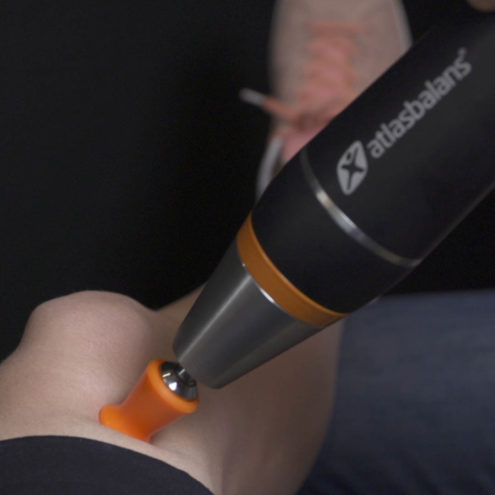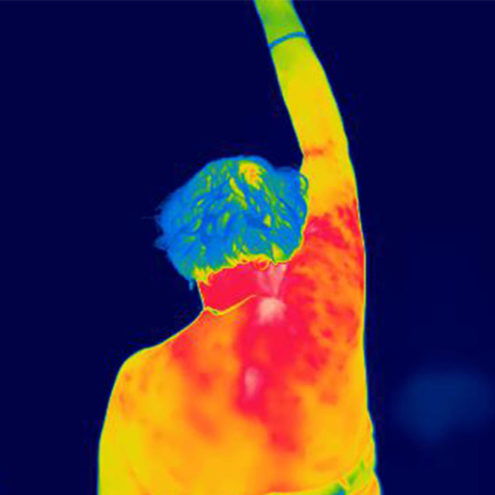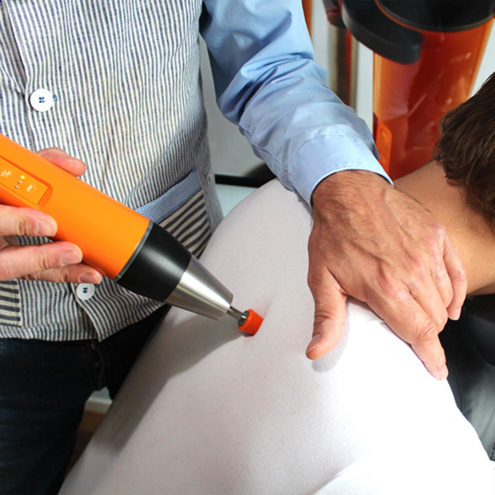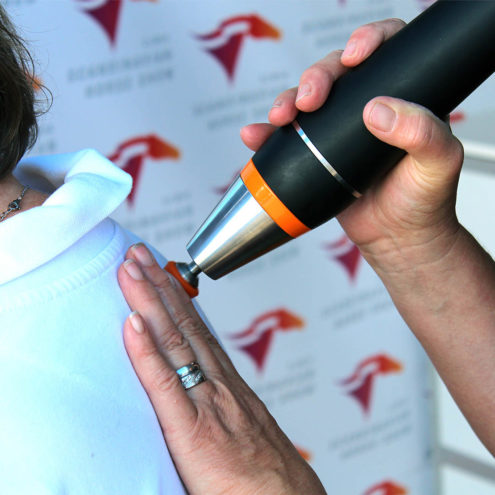Cervical disc herniation

Introduction: In this article, we will explore cervical disc herniation and give you a comprehensive overview of causes, symptoms and treatment options.
What is a cervical disc herniation?
Cervical disc herniation is a degenerative joint disease that affects the intervertebral discs in the neck. These disks act as shock absorbers between the vertebrae when we move. When the disks become damaged, they can bulge or rupture. This can cause the soft core of the disk (nucleus pulposus) to press on the surrounding nerve roots, causing pain and other unpleasant symptoms.
Causes of cervical disc herniation
There are several factors that can increase the risk of cervical disc herniation. Ageing and natural wear and tear of the discs is a common cause. Injury or trauma to the neck can also contribute to the development of a herniated disc. Poor posture, especially during long periods of forward bending, repetitive movements that put strain on the neck, and genetic factors may also play a role.
Symptoms of cervical disc herniation
Cervical disc herniation can give rise to different symptoms depending on the nerve root affected and the severity of the herniation. Common symptoms include pain in the neck, shoulders or arms. The pain may be localized or radiate along the nerve pathways, causing numbness or tingling in the arms or hands. Some people may also experience muscle weakness or reduced mobility in the neck.
Diagnosis and treatment of cervical disc herniation
A correct diagnosis of cervical disc herniation is important to determine the right treatment plan. A doctor will evaluate the patient’s medical history, conduct a physical examination and use imaging studies such as X-ray, MRI or CT scan to confirm the diagnosis. Treatment may vary depending on the severity of the symptoms. In mild cases, conservative treatment methods may be used with pain relief and physiotherapy to strengthen the muscles around the neck and improve mobility. In more severe cases, surgery may be an option to remove the damaged tissue or to immobilize the neck.
Fascia treatment for cervical disc herniation
Fascia treatment can be an effective complementary treatment method for cervical disc herniation. By focusing on releasing tension and adhesions in the fascia around the neck and spine, fascia therapy can help improve mobility, reduce pain and promote healing of the damaged discs. At the FasciaClinics, experienced fascia specialists can relieve symptoms and improve function in people with cervical disc herniation.
Advice from a specialist
It is important to consult a medical professional, such as an orthopedist, neurologist or physiotherapist, for an accurate diagnosis and individual treatment recommendations based on your specific needs and symptoms.
Lifestyle Adjustments and Prevention
In addition to medical treatment, lifestyle adjustments can also help manage the symptoms of cervical disc herniation and prevent further degeneration. Here are some tips:
Workplace ergonomics: Make sure your workplace has good ergonomics to reduce neck strain and prevent the development of herniated discs. Make sure your screen is at eye level and your elbows are at a 90 degree angle when typing.
Physical activity: Regular exercise can help strengthen the muscles of the neck and back. It can support the intervertebral discs and prevent further damage.
Weight control: Being overweight can increase strain on the spine, including the neck. Maintaining a healthy weight can reduce the risk of herniated discs and relieve symptoms.
Stop smoking: Smoking can accelerate the degeneration of the discs and worsen the symptoms of cervical disc herniation.
Forecast and Recovery
It is important to note that the experience of cervical disc herniation can vary from person to person. Many people find relief from their symptoms with conservative treatment methods, while others may need surgery. Prognosis depends on a variety of factors, including age, general health and how well the patient follows the recommended treatment plan.
Having a cervical disc herniation can be physically and mentally challenging. Following your doctor’s advice, being active in your care and making positive lifestyle changes can all help improve your quality of life and prognosis.
Cervical disc herniation can be a painful and limiting condition. By understanding the causes, symptoms and treatment options, sufferers can make informed decisions about their care and treatment. Remember to consult a specialist to receive tailored advice and treatment based on your individual situation. At the Fascia Clinics, experienced fascia specialists are ready to help relieve symptoms and promote recovery in cervical disc herniation.
 Search
Search































